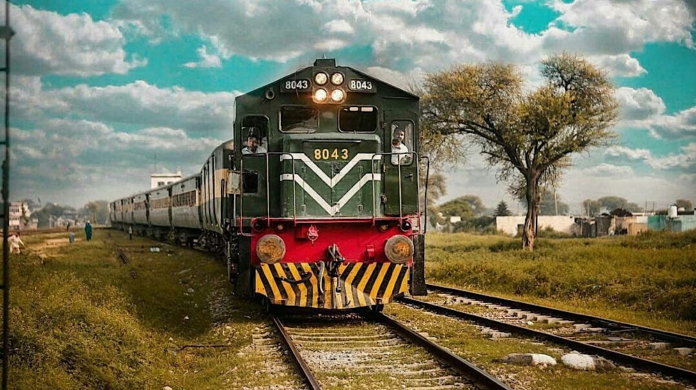Introduction: A Game Changer for Pakistan’s Trade
In a significant development aimed at enhancing the country’s trade capacity, the Government of Pakistan has officially launched a new freight train service to streamline and strengthen the nation’s logistics network. The new freight train system is expected to play a crucial role in boosting domestic and international trade, ensuring timely delivery of goods, and reducing the overall cost of cargo transportation. With increasing demands for faster and more efficient logistics in Pakistan, this initiative marks a strategic step toward reviving Pakistan Railways as a key player in the economic development of the country.
Why the Freight Train Service Matters
The launch of this freight train service addresses multiple logistical and economic challenges that have long hindered trade in Pakistan. Road congestion, high fuel prices, and delays in cargo delivery are persistent issues for businesses relying on truck transport. This new railway cargo system will provide a sustainable and eco-friendly alternative that not only reduces pressure on the road network but also offers cost-effective solutions for long-distance goods transportation.
Strategic Trade Routes & Connectivity
The freight train service will operate across major trade corridors, connecting Karachi, Lahore, Islamabad, Peshawar, and key industrial hubs. These rail routes are also aligned with the China-Pakistan Economic Corridor (CPEC), making it a vital part of the broader regional connectivity plan. The cargo train will enable quicker movement of goods to and from ports, dry ports, and border trade posts, strengthening trade ties with neighboring countries such as China, Afghanistan, and Iran.
Key Features of the Freight Train Service
- Modern Freight Wagons with high capacity
- Integrated tracking systems for real-time cargo monitoring
- Reduced transit times compared to road transport
- Enhanced security protocols for valuable goods
- Daily schedules with fixed departure and arrival times
- Partnerships with private logistics companies for freight forwarding
Economic Impact and Trade Potential
The initiative is expected to increase freight volume, create new jobs, and boost the performance of logistics and supply chain industries in Pakistan. The cargo train service will allow exporters and importers to ship goods at competitive prices, thus improving Pakistan’s standing in the global trade market. It will also help reduce the trade deficit by facilitating quicker export processing, especially for agricultural produce, textiles, electronics, and industrial equipment.
Support from Government and Stakeholders
The Ministry of Railways, in collaboration with the Ministry of Commerce and private sector players, has jointly developed the infrastructure and operation model for this service. Speaking at the launch ceremony, government officials highlighted the role of public-private partnerships in revitalizing national rail transport. Investments in infrastructure modernization, digital freight handling systems, and custom clearance automation were emphasized.
Challenges and Future Improvements
While the launch of this freight train service is a step forward, challenges such as aging rail tracks, infrastructure bottlenecks, and administrative inefficiencies still exist. The government has announced a phased upgrade plan for tracks, stations, and warehouses. Additionally, a comprehensive maintenance strategy has been devised to ensure the sustainability of the new service.
Pakistan’s Vision for Regional Trade
This new freight service aligns with Pakistan’s Vision 2025, which emphasizes infrastructure improvement and regional integration. By positioning itself as a logistics hub between South Asia, Central Asia, and the Middle East, Pakistan aims to increase its trade share across Belt and Road Initiative (BRI) routes. The rail freight network will support future connectivity projects like the Trans-Afghan Railway and Iran-Pakistan corridor.
Conclusion: A Promising Future for Freight Logistics
The launch of the new freight train service is a major step toward modernizing Pakistan’s transport infrastructure and boosting trade at national and regional levels. It promises to benefit manufacturers, exporters, retailers, and logistics companies alike by improving efficiency, reducing operational costs, and fostering economic growth. As the service expands and technology integrates further into operations, it will undoubtedly become a backbone of Pakistan’s trade ecosystem.






